Economics, Governance and public sector management, Industry and trade, Private sector development
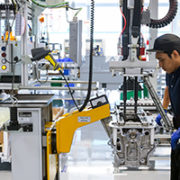 Economics, Health, Social development and protection
Economics, Health, Social development and protection
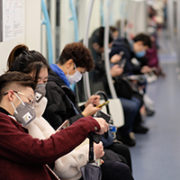 Economics, Health, Social development and protection
Economics, Health, Social development and protection
 Economics, Health, Social development and protection
Economics, Health, Social development and protection
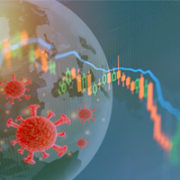 Economics, Health, Social development and protection
Economics, Health, Social development and protection
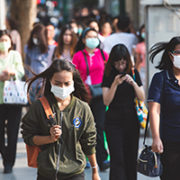 Economics, Health, Social development and protection
Economics, Health, Social development and protection
 Economics, Health, Social development and protection
Economics, Health, Social development and protection
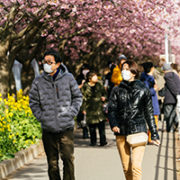 Economics, Finance sector development
Economics, Finance sector development
 Economics, Energy
Economics, Energy
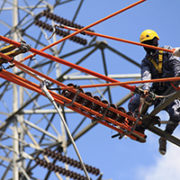 Economics, Transport, Urban development
Economics, Transport, Urban development

SMEs in global value chains: Catalysts for dynamic and inclusive economic growth

The world has been witnessing the active construction of global value chains (GVCs) by multinational corporations (MNCs) in recent decades. According to the World Bank (2020), the share of GVC trade in world trade increased rapidly from approximately 40% in 1990 to over 50% in 2007 before declining somewhat after the global financial crisis in 2007–2008. MNCs fragment production processes into various stages and locate them in various countries and places where the particular stages can be conducted most efficiently, or at least cost, in order to achieve an efficient production system.
How should ASEAN and ASEAN+3 respond to the COVID-19 crisis?

The Association of Southeast Asian Nations (ASEAN) and its bigger counterpart ASEAN+3, comprising the 10 ASEAN members and the People’s Republic of China, Japan, and the Republic of Korea (ROK), have been slow to respond to the COVID-19 pandemic. While they have been strenuously ramping up their efforts, more needs to be done, and quickly. There are many things they can do immediately, such as employing their machinery to increase consultation and cooperation to curb contagion—both medical and economic—and limit beggar-thy-neighbor policies.
The tip of the iceberg for COVID-19 cases in developing Asia?

The number of COVID-19 cases in many Asian developing countries is surprisingly low, but this may simply reflect inadequate levels of testing. The high correlation between rates of testing and per capita GDP strongly suggests that lower-income countries face a number of barriers to carrying out adequate testing. This raises the risk of rapid increases in infection rates in the future and points to the need for support for additional testing, as well as for increases in medical spending and general fiscal measures.
Global stimulus to fight the COVID-19 pandemic

The COVID-19 pandemic has quickly become a severe global crisis, with a drastic spread in less than 2 months and shifts in its epicenter. Almost 1 million people have been infected with the virus around the world, and the number of deaths has shot up rapidly and continues to grow.
Networks and technologies to assist the vulnerable during the pandemic

Developed countries can use advanced social security systems to protect households from the economic effects of the COVID-19 pandemic, but developing countries face a bigger challenge. They typically have a large informal sector and limited social security coverage, which hinder the delivery of assistance at short notice. Yet, developing Asia is better equipped to cushion the economic impact of the current crisis compared to the global financial crisis of 2008.
Improve handwashing access to combat COVID-19

Medical experts and institutions tell us that a critical but simple lifesaving action to reduce vulnerability to COVID-19 is literally in our own hands—regular handwashing with soap. Public awareness efforts underscore the need for greater behavioral compliance.
Recovering from shocks is what Asia knows best

Unimaginable setbacks to Japan nine years ago from the triple disasters of the earthquake, tsunami, and Fukushima emergency were used to pioneer new approaches to regional development and integrated reconstruction to build back better, safer, and greener.
Characterizing financial cycles: Are emerging markets different?

A feature of the academic literature on financial cycles relates to the fact that it almost exclusively focuses on selected advanced economies, the findings of which may not necessarily hold for emerging economies. Global capital flow developments and monetary policies in advanced economies mean that financial cycle dynamics may differ substantially in emerging economies, not only in terms of turning points but also with regard to which asset market cycle best characterizes the financial cycle.
Economic integration and energy efficiency for energy security in ASEAN

The security of energy supply is crucial for rapid growth in Southeast Asia, but it is being increasingly challenged by the region’s fast-growing energy demand. This high demand can be explained by improvements in energy access as well as population and economic growth.
Measuring the economic and social impacts of high-speed rail

The scale of investments in high-speed rail (HSR) raises questions about the most appropriate methods of appraisal. Increasingly the reliance on conventional cost–benefit analysis, based essentially on the direct benefits to users and the direct costs to operators, has been questioned.


Search
Subscribe / Connect to Asia Pathways
Subjects
- Agriculture and natural resources
- Blog
- Capacity development
- Climate change
- Economics
- Education
- Energy
- Environment
- Finance sector development
- Gender
- Governance and public sector management
- Health
- Industry and trade
- Information and Communications Technology
- Infrastructure
- Miscellaneous
- Population
- Poverty
- Private sector development
- Regional cooperation and integration
- Sanitation
- Social development and protection
- Transport
- Uncategorized
- Urban development
- Video Blog
- Water
Recent Posts
- Artificial intelligence: A new driver for inclusive growth and development?
- Increasing trust in cross-border e-commerce and artificial intelligence
- Enhancing access to maternal and newborn healthcare in developing Asia
- Can electric vehicles lead the way to a sustainable future?
- Mitigating climate-related sovereign risk to accelerate action on the climate emergency




Recent Comments